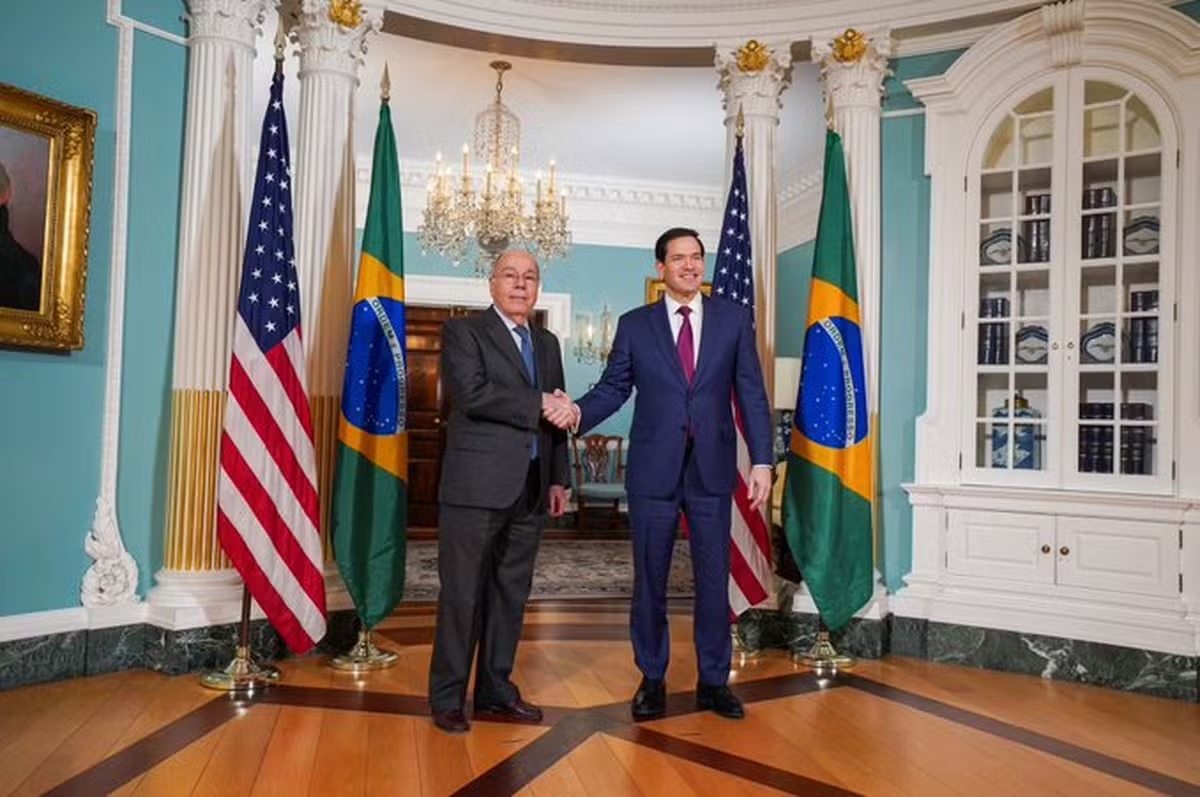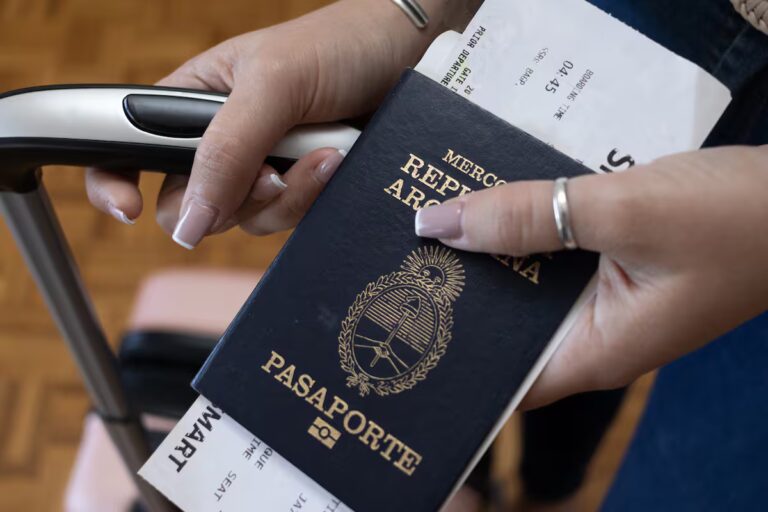
An hour-long meeting between Foreign Minister Mauro Vieira and US Secretary of State Marco Rubio in Washington yesterday raised hopes among Brazil’s government that the US could ease tariffs within days. Sanctions against Brazilian nationals, including Supreme Court Minister Alexandre de Moraes, are expected to be much more difficult to reverse in the short term, given the political costs for Rubio and other members of President Donald Trump’s administration to justify such measures against electoral bases.
The meeting, held at State Department headquarters, began with a private conversation between Mr. Vieira and Mr. Rubio, followed by extended talks with diplomats from both delegations. After the meeting, Brazil’s Prime Minister said that the discussions had focused on a general framework to guide negotiations, and that an interim agreement could be signed in November, allowing broader negotiations to proceed in early 2026. The Brazilian government has proposed a temporary suspension of tariffs until a deal is reached.
Government officials say the move is a direct result of President Luiz Inacio Lula da Silva’s meeting with US President Donald Trump in Malaysia two weeks ago. The two leaders decided to disentangle bilateral political issues and resume technical dialogue on trade.
The Brazilian government sent a proposal to Washington on November 4, Mauro Vieira said. The Prime Minister said he expected a response soon. The contents of the document are confidential. Brazil is seeking to either suspend tariffs while negotiations take place, which could take about 90 days, or increase the number of items exempt from tariffs, according to people familiar with the matter.
In July of this year, President Trump announced a 50% surcharge on Brazilian products that went into effect in August, using former President Jair Bolsonaro’s standing before Brazilian judiciary as the main justification. The new tariffs will affect products such as meat, coffee, fruit, fish, orange juice and industrial machinery. The impact was immediate. Brazil’s trade deficit with the United States totaled US$234 million in 2024, but in October alone, the third month of the tariffs, the deficit reached US$1.7 billion. In the first 10 months of 2025, the accumulated deficit has already reached USD 6.8 billion.
The United States has imposed sanctions on Alexandre de Moraes under the Global Magnitsky Act, freezing his assets, imposing financial restrictions, and banning him from entering the country. The move also affected his wife, Vivian Balsi de Moraes, and the Rex Institute, which has ties to his family, freezing its assets and preventing it from maintaining relationships with U.S. citizens and businesses.
In addition to economic sanctions, the U.S. government also pursued another initiative: revoking visas against Brazilian officials. Those affected include the Ministers of the STF (Luis Roberto Barroso, Flavio Dino, Gilmar Mendez, Díaz Toffoli, Cristiano Zanin, Carmen Lucía, and Edson Fasin), the Federal Attorney General Jorge Mesias, and the Attorney General of the Republic Paulo Gone.
The Brazilian government argues that the measure has no economic justification, as the United States continues to record a bilateral trade surplus even after the tariffs go into effect. Additionally, Brasilia is seeking to prevent the dispute from deepening within Section 301 of the U.S. Trade Code, which examines topics such as digital commerce, intellectual property, financial services, and the use of Pix as an instant payment system.



